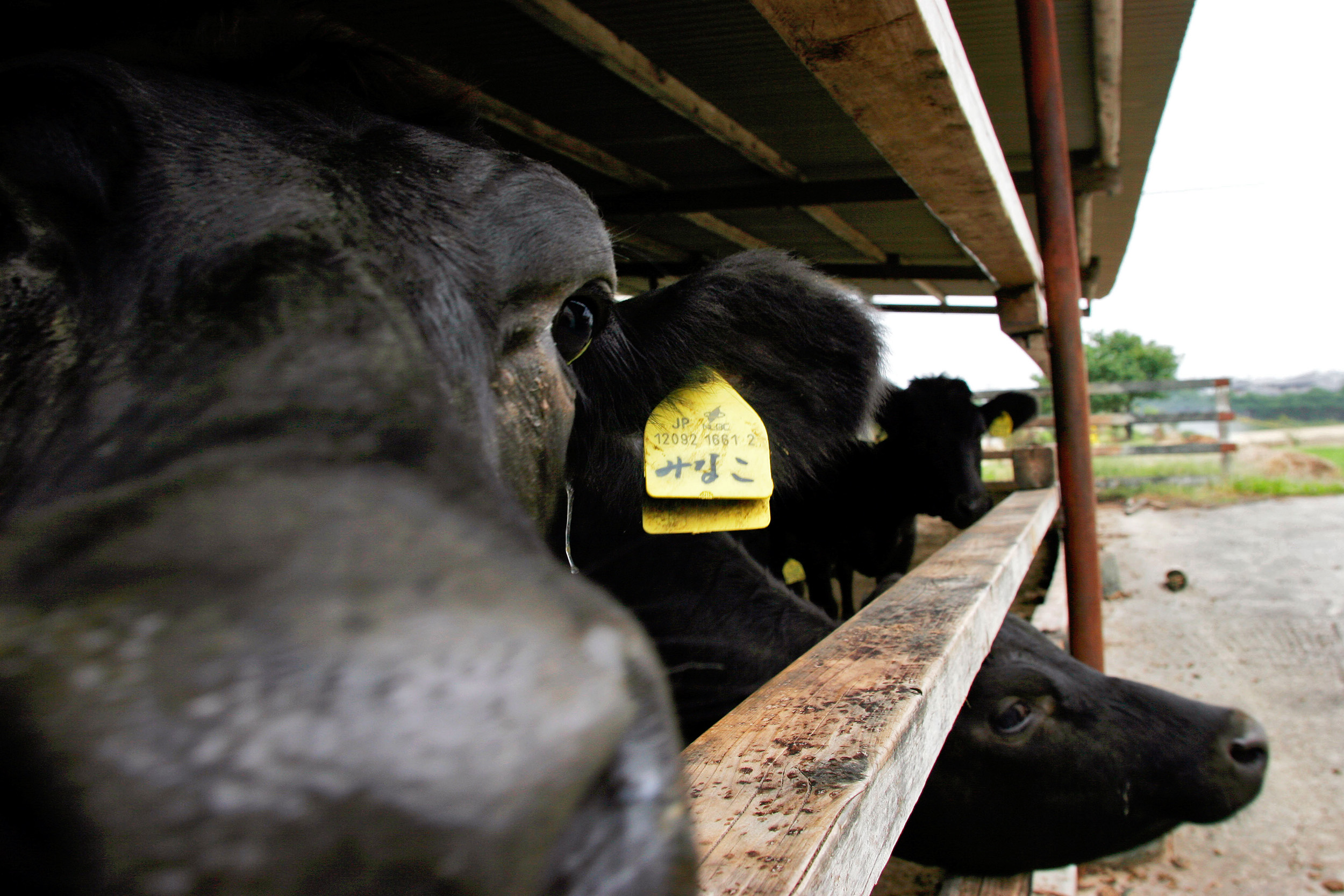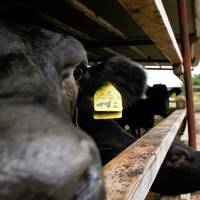Japan wants the United States to expand imports of Japanese beef under a low-tariff quota to 10-fold the current level, as part of the terms for the proposed Trans-Pacific Partnership, negotiation sources said Friday.
The two sides are negotiating details of Japan's proposal to expand the annual quota from the current 200 tons to 2,000 tons, the sources said.
Japanese and U.S. officials wrapped up two days of talks in Tokyo on Friday. Economic and Fiscal Policy Minister Akira Amari and U.S. Trade Representative Michael Froman are expected to meet on the sidelines of a ministerial meeting of all 12 Trans-Pacific Partnership countries later this month in Hawaii, and will seek to resolve remaining issues.
The United States levies a tariff of 4.4 cents per kilogram of Japanese beef. The tariff rate goes up drastically when the amount of imports exceeds 200 tons.
Japan exported a total of 1,251 tons of beef in 2014, of which 153 tons was for the United States. Tokyo plans to boost total beef exports to 4,000 tons by 2020.
If the TPP comes into being, Japan would incrementally cut its 38.5 percent tariffs on imports of U.S. beef to as low as 9 percent in 15 years after the pact takes effect, a measure which could damage domestic farmers.
If Japan can expand its beef exports to the United States under the TPP, it could help alleviate the negative impact on farmers and allow them to gain more international recognition for wagyu beef.
Ministers from Japan, the United States and the 10 other countries — Australia, Brunei, Canada, Chile, Malaysia, Mexico, New Zealand, Peru, Singapore and Vietnam — are set to meet for four days starting July 28 in Maui, Hawaii.




